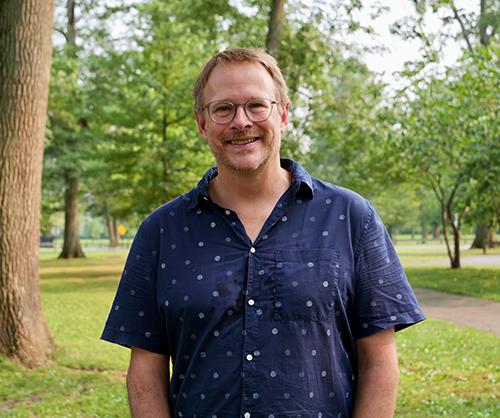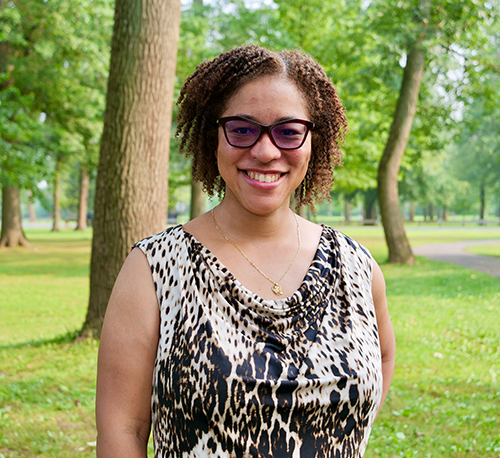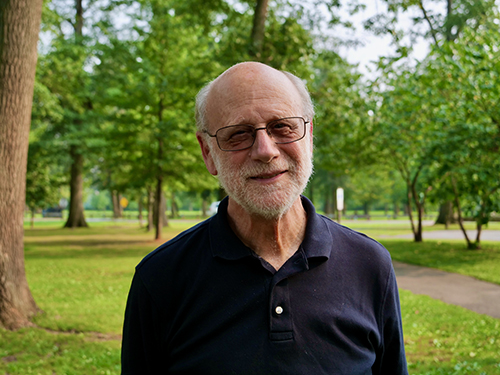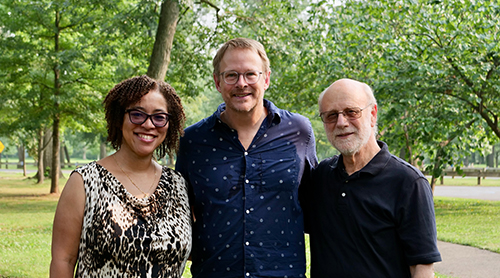Meet Our IMSD Leadership at Rutgers
Since 1996, the IMSD program at Rutgers University has supported the training of more than 100 Ph.D. trainees. Our graduates are pursuing careers that include: research and/or teaching in academic institutions; research and management in biotech, pharmaceutical, and other research-based industries; science writing and consulting; research, administration, and science policy in government agencies; medicine.
Loren Runnels, Ph.D.
Principal Investigator and Director

Loren Runnels, Ph.D.
Professor, Department of Pharmacology
B.S., Colorado School of Mines
Ph.D. Stony Brook University
Postdoctoral Training: Harvard Medical School
The focus of the Runnels laboratory is to understand the role that ions such as calcium magnesium, and zinc play in living organisms. Dr. Runnels’ current research focus is on the function of the TRPM7 and TRPM6 ion channels, which transport these divalent cations, and their contribution to human health and disease. He also has a strong interest and commitment to graduate education and the potential of graduate students to make a positive impact on this world. Throughout his years at Rutgers, Dr. Runnels has contributed to Rutgers University’s commitment to diversity in its graduate programs by working on admissions and interview committees for diversity programs. He was previously a PI on the Bridges to the Doctorate: UPR to Rutgers Program and in 2021, joined as a PI on the T32 IMSD training grant. Dr. Runnels is also deeply interested in innovative approaches to empower graduate student success. He is a PI on a new and novel 5-year study funded by the NIH to evaluate the positive effects of professional coaching on biomedical PhD academic achievement. The new program, called BEACON (Biomedical Excellence Achieved through COaching Networks) program, is schedule to begin in the fall of 2024. Dr. Runnels also serves as the Research Ombudsperson for Rutgers RWJMS and is committed to success of researchers at Rutgers at all levels.
Tracy Scott, Ph.D.
Principal Investigator and Director

Special Projects Coordinator, School of Graduate Studies RBHS-NB
B.S., Cornell University
Ph.D., Rutgers University
Postdoctoral Training: Rutgers University
Dr. Tracy Scott joined Drs. Loren Runnels and Jerry Langer as one of the Directors of the IMSD program in 2023, after working with the IMSD program for several years as the program coordinator. She is currently a Special Projects Coordinator with the School of Graduate Studies/Rutgers Biomedical and Health Sciences (RBHS) and is involved in many projects geared towards the betterment of the biomedical graduate students’ experience, including initiatives to improve both diversity education and outreach. In addition, Dr. Scott is also the program director for the BEACON (Biomedical Excellence Achieved through COaching Networks) program, a new and novel 5-year study funded by the NIH to evaluate the positive effects of Coaching on biomedical PhD academic achievement.
Dr. Scott’s research in Biomedical Engineering at Rutgers involved mathematical modeling of muscle fibers to determine the effects of stunning on myocardial tissue and modeling of flow in collapsible vessels to show a connection between chaotic flow within a collapsible or stenotic vessel and the ischemic episodes that produce myocardial stunning. She has also worked on actuating nanofibers for a tissue engineering scaffold that would contract, without muscle being present, while providing a foundation for muscle regeneration in vivo, allowing the “muscle” to be useful before muscle regeneration.
Jerome Langer, Ph.D.
Director

Dr. Jerome A. Langer
Associate Professor, Department of Pharmacology
B.A. Lawrence University (Wisconsin)
Ph.D. Yale University
Postdoctoral Training: University of California-Los Angeles; Roche Institute of Molecular Biology
A biophysicist by training, Dr. Jerry Langer’s research focused on the early immune response to viruses, advancing our understanding of interferons and their receptors, as well as our understanding of the physiological roles of interferons. He is also deeply passionate about teaching and student development He has a steadfast commitment to increasing the diversity of students in academia in the biomedical workforce. Dr. Langer's efforts have been recognized both internally and externally, earning him the Rutgers University "Leaders in Faculty Diversity Award," the "Dean’s Award for Extraordinary Service to the School of Graduate Studies," as well as the award of multiple NIH training grants.
Dr. Langer's dedication to increasing the diversity of students at Rutgers began in 1993. At that time, he helped lead a summer research experience and mentor program for undergraduate students from groups underrepresented in the biological/biomedical sciences. Then, he recruited to become co-PI of our NIGMS/NIH-funded "Initiative to Maximize Student Diversity" (IMSD) Program in 1998 and the "Bridge to the Doctoral Program: the University of Puerto Rico to Rutgers" in 2000. He became the lead PI of both grants in 2011.
Through his advocacy and mentorship, Dr. Langer has helped shepherd more than 120 Ph.D. and M.S. students through these programs. These young, diverse, and talented scientists have continued into a variety of science careers, including teaching and research positions in academia and industry; science writing; science teaching at other levels, and professional positions with science organizations. He is happy to share and continue this important work with his fellow IMSD Directors, Drs. Tracy Scott and Loren Runnels.
